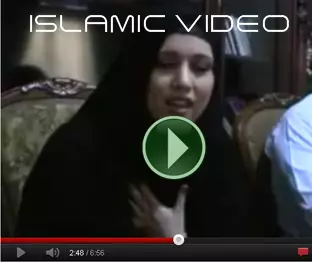 Action that do not break one’s fast
Action that do not break one’s fast
1. If one ate or drunk by mistake without being conscious of his/her fasting.
2. To have an injection, provided its medicine does not directly reach the stomach.
3. To put eyeliner on, or to apply surma or madicine into the eyes.
4. To have a bath or shower.
5. To rub oil into the body or hair.
6. To apply itr or perfume.
7. To vomit unintentionally.
8. To brush the teeth without use of a tooth paste example to use the miswak.
9. To have a wet dream.
10. To have a blood test.
11. To attend a dental appointment, medicine or blood etc is swallowed.
Action that do not break one’s fast
1. If one ate or drunk by mistake without being conscious of his/her fasting.
2. To have an injection, provided its medicine does not directly reach the stomach.
3. To put eyeliner on, or to apply surma or madicine into the eyes.
4. To have a bath or shower.
5. To rub oil into the body or hair.
6. To apply itr or perfume.
7. To vomit unintentionally.
8. To brush the teeth without use of a tooth paste example to use the miswak.
9. To have a wet dream.
10. To have a blood test.
11. To attend a dental appointment, medicine or blood etc is swallowed.
Action that break one’s fast
1. While gargling, water accidentally going the throat.
2. If one swallows pure blood only. along with saliva then as long as the saliva is more, the fast would not break.
3. If one intentionally vomits a mouthful.
4. If one intentionally swallows a pebble, a piece of paper or any other item that is not used as food or medicine.
5. If one carries on eating after the time of suhoor is over due to some reason, Example faulty watch etc.
6. If one makes iftaar before sunset, due to any reason, example a faulty watch.
7. If one deliberately inhales smoke of any kind example looban, agar batti or cigarettes.
8. If one puts medicine into the nostrils/ears or in the anal passage.
Action that are Makrooh (undesirable and discouraged while fasting)
1. To chew things like rubber or plastic item.
2. To use tooth paste or tooth powder for cleaning teeth.
3. To let the water go too far up the nostrils when cleaning the nose.
4. To over gargle the mouth.
5. To quarrel argue and to use filthy or indecent words.
6. To swear, tell lies, backbite, etc.
7. To complain of thirst and hunger.
Mustahabbaat (Preferable acts) of fasting
1. To eat sehri (meal before the break of dawn).
2. To make intention for keeping the fast at night.
3. To eat sehri as late as possible, as long as it is finished before the dawn.
4. To hurry in iftaar (breaking the fast), as long as there is no doubt that the sun has set.
5. To avoid telling lies, abusing, and backbiting.
6. To make iftaar with dry or fresh dates. If they not available, then with water.
Fidya (Compensation)
Fidya refers to the compensation that Islam allows to those who cannot fast in the month of Ramadaan and even after
Ramadaan. Those who are exempted from fasting in Ramadaan and allowed to pay fidya. are the folowing:
1. Those who are very old and have no strength to fast in Ramadaan or even out of Ramadaan.
2. Those who are permanently ill and have no hope of recovery even after Ramadaan. These are usually people who
are also on chronic medication.
Fidya can be paid through food items or even cash. If paid in cash then current rate of Sadaqatul fitr should be paid
for each fast missed.
Note: Fidya is not an option for those who are temporarily ill or exempted from fasting in Ramadaan. They should
make up for the missed fasts after Ramadan by practically fasting.
TAKE NOTE
1. If in the month of Ramadaan after starting the fast for the day one deliberately break it without a valid reason with
something edible or drinkable, then long with qadaa, they must also give a penalty of continuos fasting for 2 months
after Ramadan. This is known as “kaffarah”.
2. In the month of Ramadaan, If a fast breaks for some reason, one should still abstain from eating or drinking until
sunset. However if a fst was not kept in the first place due to a valid reason, then eating and drinking throughout the
day is allowed but preferably secretly. This is on acount of respect for the month of Ramadaan and for those who may
be fasting.
1. While gargling, water accidentally going the throat.
2. If one swallows pure blood only. along with saliva then as long as the saliva is more, the fast would not break.
3. If one intentionally vomits a mouthful.
4. If one intentionally swallows a pebble, a piece of paper or any other item that is not used as food or medicine.
5. If one carries on eating after the time of suhoor is over due to some reason, Example faulty watch etc.
6. If one makes iftaar before sunset, due to any reason, example a faulty watch.
7. If one deliberately inhales smoke of any kind example looban, agar batti or cigarettes.
8. If one puts medicine into the nostrils/ears or in the anal passage.
Action that are Makrooh (undesirable and discouraged while fasting)
1. To chew things like rubber or plastic item.
2. To use tooth paste or tooth powder for cleaning teeth.
3. To let the water go too far up the nostrils when cleaning the nose.
4. To over gargle the mouth.
5. To quarrel argue and to use filthy or indecent words.
6. To swear, tell lies, backbite, etc.
7. To complain of thirst and hunger.
Mustahabbaat (Preferable acts) of fasting
1. To eat sehri (meal before the break of dawn).
2. To make intention for keeping the fast at night.
3. To eat sehri as late as possible, as long as it is finished before the dawn.
4. To hurry in iftaar (breaking the fast), as long as there is no doubt that the sun has set.
5. To avoid telling lies, abusing, and backbiting.
6. To make iftaar with dry or fresh dates. If they not available, then with water.
Fidya (Compensation)
Fidya refers to the compensation that Islam allows to those who cannot fast in the month of Ramadaan and even after
Ramadaan. Those who are exempted from fasting in Ramadaan and allowed to pay fidya. are the folowing:
1. Those who are very old and have no strength to fast in Ramadaan or even out of Ramadaan.
2. Those who are permanently ill and have no hope of recovery even after Ramadaan. These are usually people who
are also on chronic medication.
Fidya can be paid through food items or even cash. If paid in cash then current rate of Sadaqatul fitr should be paid
for each fast missed.
Note: Fidya is not an option for those who are temporarily ill or exempted from fasting in Ramadaan. They should
make up for the missed fasts after Ramadan by practically fasting.
TAKE NOTE
1. If in the month of Ramadaan after starting the fast for the day one deliberately break it without a valid reason with
something edible or drinkable, then long with qadaa, they must also give a penalty of continuos fasting for 2 months
after Ramadan. This is known as “kaffarah”.
2. In the month of Ramadaan, If a fast breaks for some reason, one should still abstain from eating or drinking until
sunset. However if a fst was not kept in the first place due to a valid reason, then eating and drinking throughout the
day is allowed but preferably secretly. This is on acount of respect for the month of Ramadaan and for those who may
be fasting.



















